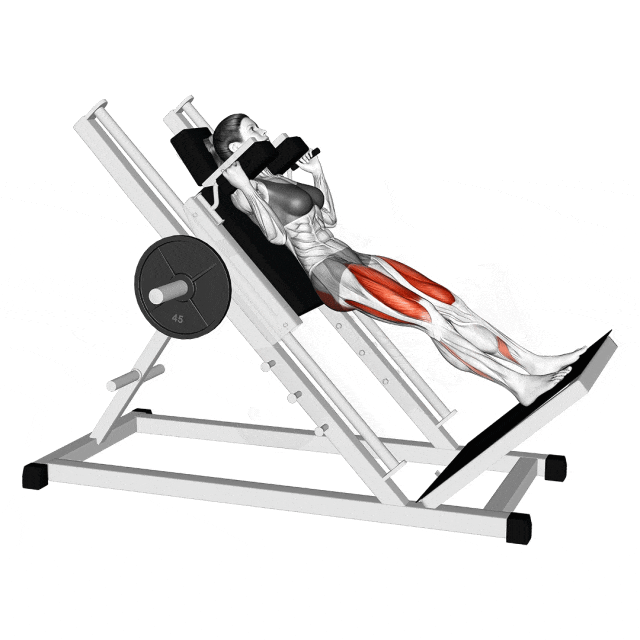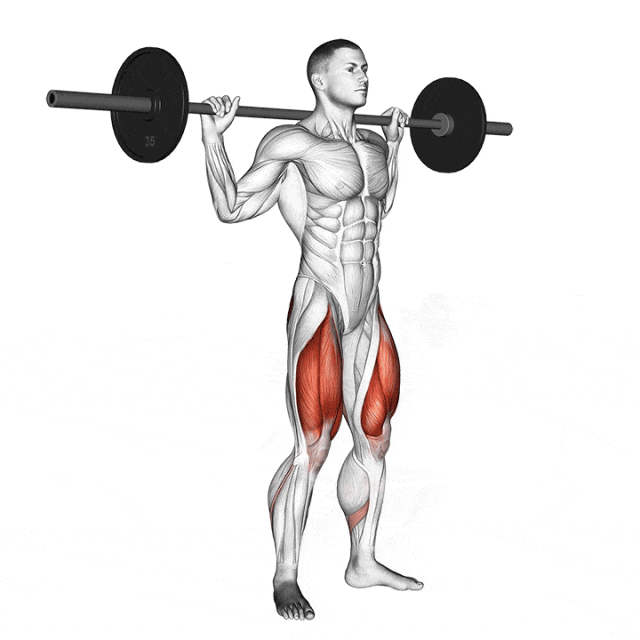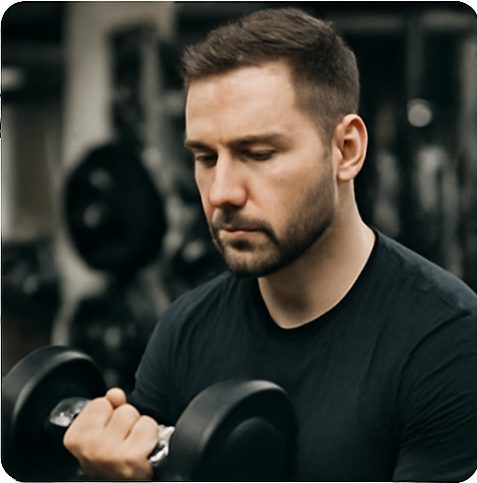The whole hack squat vs squat thing hit me when my knees started barking after heavy barbell sessions. I still wanted to train legs hard — just not at the cost of my joints.
I work out at a commercial gym that’s got all the toys. One day I wandered over to the hack squat machine and figured, “Why not?” After a few weeks of rotating both, I noticed some big differences — not just in feel, but in what each one hit.
So yeah, this isn’t just theory. I actually ran both and paid close attention. Here’s what I found.
What a Hack Squat Even Is And How To Do It Right
So here’s the deal — the hack squat machine is basically a big sled setup. You step in, plant your feet on the angled platform, rest your shoulders under the pads, and squat down in a fixed path. It’s like a squat that’s locked into a groove. You don’t have to worry about balance or bar control — just push.
The machine at my gym is smooth, solid, and crazy good for keeping tension on the quads. But the key is doing it right. Here’s what I focus on:

How I do it right:
- Feet a little higher on the platform (helps my knees feel better)
- Toes slightly out, not crazy wide
- I go just below parallel — deep enough to feel it, not so deep I fold
- Keep my back glued to the pad
- Push through heels, not toes
Once you get that setup dialed in, you’ll feel your quads light up — big time.
Hack Squat Pros
- Super easy to learn
- Quad pump is unreal
- Less stress on the lower back
- Safer for folks with iffy balance or joint stuff
Hack Squat Cons
- Doesn’t train your stabilizers much
- Form can still mess up your knees if you go sloppy
- Not as “real world” as a barbell squat
Overall, it’s a great tool — especially in a busy gym where you want to load up, hit legs hard, and not overthink the setup.
What a Squat Actually Is Besides Just The King
Alright, everyone calls it “the king of lifts” — and yeah, I get it now. A barbell back squat is just you, the bar, and gravity. No machine helping. You drop your hips, stay balanced, and push back up. Simple… but not easy.
It’s a full-body move. Hits your quads, glutes, hamstrings, core — even your upper back has to stay tight. You need balance, control, and some mobility. Way more technical than a hack squat, but also way more rewarding when it clicks.

How I cue it for myself:
- “Sit back, not straight down” — keeps the weight off my knees
- Big breath before each rep — brace like someone’s gonna punch you
- Eyes forward, not up
- Drive through the middle of my foot — not heels, not toes
- Stay tight the whole time — no floppy elbows or soft core
Some days it feels heavy as hell. But when it moves well, it’s one of the best feelings in barbell lifting.
Squat Pros
- Builds total-body strength
- Transfers well to sports and real-life movement
- Hits a bunch of muscles in one go
- You feel like a beast when it moves clean
Squat Cons
- Harder to learn — especially for beginners
- Can wreck your back or knees if form’s off
- Mobility issues make it tricky for some lifters
Still, if you’ve got the setup and the time to learn it, barbell squats are a solid foundation in any serious leg day.
What’s The Actual Difference
👉 In short: When it comes to hack squat vs squat, the biggest difference is this — squats hit more muscles and need more balance and control. Hack squats lock you into a path, so they hit your quads hard without stressing your back as much.
If you want overall strength and athletic carryover, squats win. If you’re chasing leg size or need something joint-friendly, hack squats are solid.
Full Comparison: Hack Squat vs Squat
Here’s how I personally break it down, after running both for months in a commercial gym setup:
| Feature | Hack Squat | Squat |
|---|---|---|
| Mechanics | Machine-guided, smooth path | Full control, bar on your back |
| Muscle Focus | Mostly quads, a little glutes | Quads, glutes, hammies, core — whole deal |
| Skill Needed | Super beginner-friendly | Takes time — mobility + good form are key |
| Lower Back Load | Low — machine takes the stress off | High if your bracing/form isn’t dialed |
| Progressive Overload | Easy to load up plates and push volume | Totally works — just demands solid technique |
| Stability Required | Basically none — just push and go | Full-body stability — core works overtime |
| Joint Stress | Easier on spine, knees need clean form | Knees + back can take a beating if off-form |
If I’m short on time or want to hit quads without draining my CNS, I go hack squat. But if I’m feeling strong and want a full-body challenge, squats still reign supreme.
It all depends on what you’re training for — and how your body feels that day.
Can One Replace the Other?
Here’s the short version: not really.
When people ask about hack squat vs squat, they usually wanna know if one can fully replace the other. In my experience?
If you’re mainly chasing quad growth and want less overall fatigue, hack squats are a solid choice. . They’re super easy on the back, easy to stack heavy, and you can rep out hard without totally frying your CNS. Basically, they’re built for volume and pushing past failure — without feeling like you got hit by a truck afterward.
But barbell squats? Different beast. If you’re training for real strength, performance gains, or just want to build that full-body power, squats still run the show. They hit way more muscles, especially the posterior chain, and they’ve got way more carryover to, well… everything. So, while hack squats slap for isolating the quads, barbell squats are still king when it comes to all-around dominance.
Bottom line? They’re not exactly interchangeable — it just depends on what you’re after that day.
So yeah — one isn’t “better,” they just do different things.
How I Use Both in My Training
I don’t try to choose one over the other. I just use both — smart.
Here’s how I usually run it on leg day in a commercial gym setup:
- I’ll start with heavy squats while I’m fresh. That’s my strength focus.
- Then I’ll move to hack squats for higher reps — more controlled, more volume, less stress on my joints.
Sometimes I even flip it if I’m beat up or deloading — start with hack squats and skip the barbell. Keeps my legs growing without frying my nervous system.
Point is, both have a place. Just depends on the day, the goal, and how cooked my body feels.
Use both. Train smart. Keep building.

Hi, I’m the editor here at Leadman Fitness. We’re a manufacturer focused on producing top-quality barbells, plates, kettlebells, dumbbells, and strength training gear. I’ve been into sports and fitness for years, and I know my way around all kinds of gym equipment—both from using it and helping create it.
I spend a lot of time understanding the real problems people run into in the gym—whether it’s beginners trying to pick the right gear or experienced lifters looking for something more durable. I stay in close touch with our production team and talk directly with other equipment makers, so we’re always improving based on what real lifters and coaches are looking for.
What I share comes from hands-on experience—stuff that actually helps people train better, not just in theory, but in real gyms.